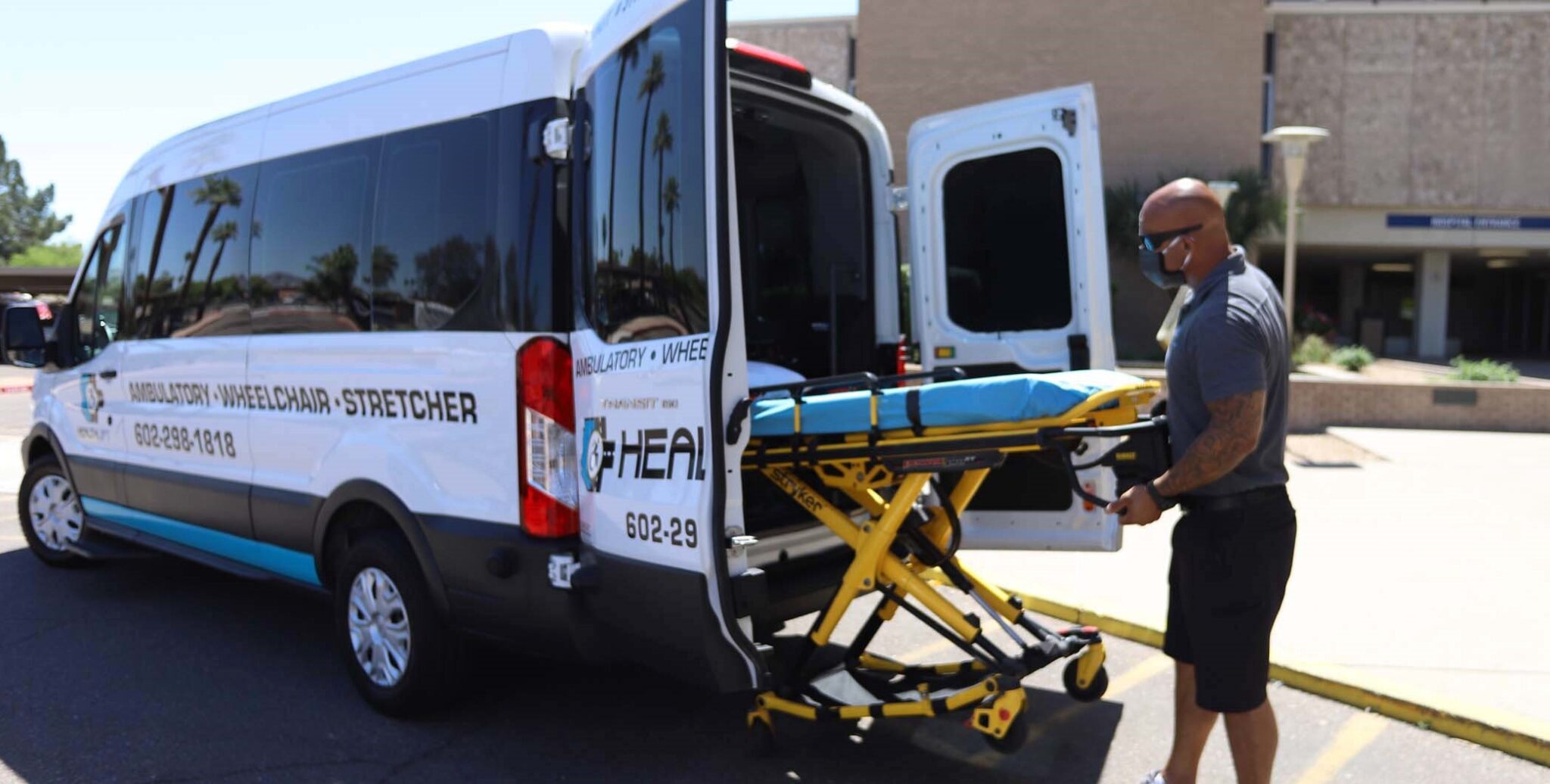Medical carriers independent contractorcraigslist southcoast new bedford presents a unique opportunity for individuals seeking flexible, independent work in the healthcare transportation sector. This analysis explores the viability of this career path, examining the local market demand, legal considerations, operational challenges, and financial projections for independent contractors seeking medical transport jobs via Craigslist in the SouthCoast New Bedford region of Massachusetts.
We’ll delve into the advantages and disadvantages of this approach, providing a comprehensive overview to help aspiring entrepreneurs make informed decisions.
The following sections will provide a detailed examination of Craigslist postings, legal requirements in Massachusetts, business operations, client acquisition strategies, and financial planning. By combining market research with practical advice, this document aims to equip potential medical transportation independent contractors with the knowledge needed to succeed in this competitive field. We will explore effective advertising strategies, client relationship building techniques, and financial management practices crucial for long-term sustainability.
Geographic Scope and Market Analysis: Medical Carriers Independent Contractorcraigslist Southcoast New Bedford
The South Coast region of Massachusetts, specifically New Bedford and its surrounding areas, presents a unique market for independent medical transportation contractors. Understanding the demographics, healthcare infrastructure, and competitive landscape is crucial for success in this sector. This analysis will examine the potential demand for medical transportation services, compare the local job market for independent contractors, and highlight the advantages and disadvantages of operating within this geographic area.
South Coast New Bedford Area Demographics and Healthcare Infrastructure
New Bedford is a city with a rich history and a diverse population. According to recent census data, the area exhibits a mix of age groups, income levels, and ethnicities. A significant portion of the population falls within the older age brackets, creating a substantial need for medical transportation services for doctor’s appointments, hospital visits, and other healthcare-related travel.
The region’s healthcare infrastructure includes several hospitals, numerous physician offices, and various healthcare facilities, creating a geographically dispersed demand for transportation services. The presence of a significant elderly population, coupled with the geographic spread of healthcare facilities, points towards a substantial need for efficient and reliable medical transportation.
Potential Demand for Medical Transportation Services in the South Coast New Bedford Region
The aging population in the South Coast New Bedford area contributes significantly to the demand for medical transportation services. Many elderly individuals lack personal transportation or have mobility limitations, making reliable transportation to and from medical appointments essential. Additionally, the presence of several hospitals and healthcare facilities within the region further fuels the demand. The high concentration of healthcare providers and the considerable elderly population create a robust and consistent need for these services.
This demand is further amplified by the increasing prevalence of chronic illnesses and the need for frequent medical visits among the older population. For example, the significant number of patients requiring dialysis treatment or regular oncology appointments necessitates reliable transportation options.
Find out further about the benefits of metropcs com near mewaterloo craigslist that can provide significant benefits.
Local Job Market for Independent Contractors in Medical Transportation
The local job market for independent contractors in medical transportation within the South Coast New Bedford area is moderately competitive. While several established companies operate in the region, there is also room for independent contractors to establish themselves, particularly those focusing on specialized services or targeting niche markets. The level of competition depends on factors such as the contractor’s specialization (e.g., wheelchair accessible transportation, non-emergency medical transportation (NEMT)), marketing strategy, and pricing.
The availability of online platforms and contracting opportunities through healthcare providers also influences the competitive landscape. Successful independent contractors often differentiate themselves through superior customer service, reliability, and specialized equipment or services.
Advantages and Disadvantages of Operating in the South Coast New Bedford Area
| Advantage | Disadvantage | Opportunity | Challenge |
|---|---|---|---|
| Significant demand from aging population | Moderate competition from existing providers | Specializing in niche services (e.g., wheelchair transport) | Securing sufficient insurance coverage and licensing |
| Concentrated healthcare infrastructure | Potential seasonal fluctuations in demand | Developing strong relationships with local healthcare providers | Managing fluctuating fuel costs and vehicle maintenance |
| Opportunity for flexible work schedule | Relatively small geographic area, limiting potential client base | Utilizing technology for efficient route planning and scheduling | Competition for qualified drivers and staff |
| Potential for high earning potential with efficient operation | Potential for traffic congestion in urban areas | Expanding service offerings to meet diverse community needs | Maintaining consistent customer service and positive reputation |
Independent Contractor Legal and Regulatory Landscape
Operating as an independent contractor in the medical transportation field in Massachusetts requires a thorough understanding of the legal and regulatory landscape. Failure to comply with these regulations can lead to significant legal and financial repercussions. This section Artikels key legal requirements, insurance implications, potential risks, and essential considerations for independent contractors in this specialized area.
Massachusetts Legal Requirements for Medical Transportation Contractors, Medical carriers independent contractorcraigslist southcoast new bedford
Independent contractors providing medical transportation services in Massachusetts must adhere to various state and federal regulations. These include, but are not limited to, obtaining the necessary licenses and permits for operating a vehicle for commercial purposes, complying with Department of Transportation (DOT) regulations regarding vehicle maintenance and driver qualifications, and adhering to the state’s insurance requirements for commercial vehicles.
Specific requirements can vary depending on the type of medical transportation services offered (e.g., wheelchair van transportation, non-emergency medical transportation (NEMT)). Contractors should directly consult the Massachusetts Registry of Motor Vehicles (RMV) and the Massachusetts Department of Public Health (DPH) for the most up-to-date and precise information relevant to their specific services. Failure to comply with these regulations can result in fines, license suspension, or even criminal charges.
Insurance and Liability Implications for Medical Transportation Contractors
Adequate insurance coverage is paramount for independent contractors in medical transportation. This includes commercial auto insurance with liability coverage that meets or exceeds state minimums, and potentially additional coverage such as cargo insurance (for medical equipment) and umbrella liability insurance to protect against significant claims. The level of insurance needed will depend on factors such as the type of vehicle used, the services provided, and the number of passengers transported.
It is crucial to understand the specific policy details and ensure the coverage adequately protects against potential accidents, injuries, or property damage. Failing to maintain adequate insurance could leave the contractor personally liable for significant financial losses in the event of an incident.
Potential Legal Risks Associated with Medical Transportation Contracting
Several legal risks are inherent in operating as an independent contractor in medical transportation. These include accidents resulting in passenger injury or death, claims of negligence or medical malpractice (if the contractor is involved in handling patients), HIPAA violations related to patient privacy, and disputes with clients or referring entities regarding payment or service quality. Furthermore, improper handling of medical equipment or failure to comply with safety regulations can lead to significant legal consequences.
Proactive measures, such as thorough training, adherence to safety protocols, and maintaining comprehensive insurance coverage, are essential to mitigate these risks.
Key Legal Considerations for Medical Transportation Independent Contractors
The following list summarizes key legal considerations for independent contractors in the medical transportation field in Massachusetts:
- Obtain all necessary licenses and permits from the RMV and relevant state agencies.
- Comply with all DOT regulations concerning vehicle maintenance and driver qualifications.
- Secure adequate commercial auto insurance and other relevant insurance coverage.
- Maintain accurate records of all business transactions and client interactions.
- Understand and comply with HIPAA regulations regarding patient privacy and data security.
- Implement and maintain robust safety protocols to minimize the risk of accidents and injuries.
- Develop and utilize clear contracts with clients outlining services, payment terms, and liability limitations.
- Consult with legal counsel to ensure compliance with all applicable laws and regulations.
Financial Considerations and Projections

Successfully operating a medical transportation business as an independent contractor in the SouthCoast New Bedford area requires careful financial planning and management. Understanding costs, pricing strategies, and projecting profitability are crucial for long-term success. This section will Artikel key financial aspects to consider when launching and maintaining your business.
Cost Calculation for Medical Transportation Services
Calculating the cost of providing medical transportation services involves identifying both fixed and variable expenses. Fixed costs remain consistent regardless of the number of trips, such as insurance premiums, vehicle lease or loan payments, and licensing fees. Variable costs fluctuate depending on the volume of work, including fuel, maintenance, tolls, and cleaning supplies. A detailed breakdown of these costs is essential for accurate pricing and profit margin assessment.
For example, a monthly insurance premium might be $500, while fuel costs could average $2 per mile driven. Adding these costs together, along with others like vehicle maintenance and cleaning, allows for a comprehensive understanding of the cost per trip.
Pricing Models for Medical Transportation Services
Several pricing models exist for medical transportation services. These models can include per-trip pricing, hourly rates, mileage-based rates, or a combination thereof. Per-trip pricing offers a fixed fee for each transport, simplifying billing but potentially overlooking variations in distance or trip complexity. Hourly rates are suitable for longer transports or situations requiring waiting time. Mileage-based rates are calculated based on the distance traveled, reflecting fuel costs and wear and tear on the vehicle.
A blended model might offer a base fee per trip plus additional charges based on mileage or waiting time. For example, a base fare of $50 for a local trip could increase by $2 per mile for distances beyond a certain radius. The choice of pricing model depends on factors such as the types of services offered, target market, and local competition.
Financial Projection for a Year of Operation
Creating a financial projection requires estimating revenue and expenses over a year. This projection should include realistic estimates for the number of trips per month, average trip cost, and total expenses. Consider seasonal variations in demand. For instance, a hypothetical projection might assume 10 trips per week at an average of $75 per trip, resulting in a monthly revenue of $3000.
Annual revenue would then be $36,000. Subtracting annual expenses (insurance, fuel, maintenance, vehicle payments, etc.), which might total $24,000, would yield an estimated annual profit of $12,000. This is a simplified example, and a more detailed projection would incorporate additional factors like marketing costs, administrative expenses, and potential unexpected costs. Using spreadsheet software is highly recommended for creating and managing this financial projection.
Strategies for Managing Finances and Ensuring Profitability
Effective financial management is critical for profitability. Strategies include maintaining accurate financial records, regularly reviewing expenses to identify areas for cost reduction, and exploring opportunities to increase revenue, such as expanding service offerings or targeting new client groups. Consistent pricing and timely billing are also essential. Furthermore, securing adequate insurance coverage protects against potential financial liabilities. Establishing a business credit line can provide financial flexibility for unexpected expenses or periods of lower revenue.
Regularly comparing actual performance against the financial projection allows for prompt adjustments to the business plan as needed. Maintaining a dedicated business bank account separates business and personal finances, improving financial organization and tracking.
Successfully navigating the landscape of medical transportation as an independent contractor in SouthCoast New Bedford requires a strategic blend of market understanding, operational efficiency, and robust financial planning. By leveraging Craigslist and other client acquisition methods, adhering to legal regulations, and maintaining strong client relationships, independent contractors can establish a thriving and sustainable business. This analysis has highlighted the key considerations, offering a framework for success in this dynamic sector.
Remember to always prioritize safety, legal compliance, and client satisfaction to build a reputable and prosperous medical transportation service.

